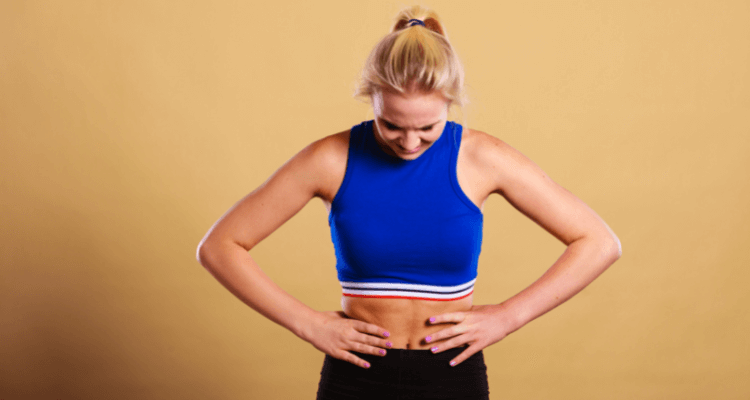


Let me preface this entire blog by saying that anyone who tells you that you have to do 'x' when you are in 'x' phase of your cycle - RUN!
As part of my research for this blog, I found credible sources in the media advising women to "avoid weights around their period" and that women should "only partake in light exercise such as yoga" during this time.
To me, this is crazy advice!
But not in the sense that it is wrong to say that.
Some women have awful symptoms around their menstrual cycle, especially around their period. Therefore for some women it may be advisable to reduce, adjust or even remove intense training.
But this is not the same for every woman.
This is because no woman is the same and how each woman feels around their cycle is going to vary hugely.
Over the years of working with hundreds of women, I've had many that have said to me that they were:
...All whilst being on their period.
So if these women had all followed this advice, they may have missed out on their best ever workouts and another chance to get fitter or stronger.
To me this is an utter travesty.
Hopefully you can now see why it would be ill-advised of me to make blanket recommendations about how women should train around their cycle.
I would also like to add that the question of 'how to optimise your training around the menstrual cycle' is such a hugely under-researched area. So we as Personal Trainers, do not have all the answers and can only help guide you in making small adjustments to your training.
So no matter what phase you are in, the best piece of advice I can give you is this:
Do whatever makes you feel better.
Exercise is such a powerful force which can elevate your mood (boosting those endorphins which can make you happier), give you a sense of accomplishment and even relieve some of your period symptoms.
You can:
- Lift weights
- Go for a swim
- Do a yoga session
- Do a cardio class or session
- Play with your kids
- Have fun
All of these things have the potential to lift your mood and make you feel better.
Exercise is one of the best ways to re-energise you and make you feel better.
The Menstrual Cycle
28-32 days is the average length of the female cycle. It follows 4 distinct phases:
Typically, women can feel more energetic during the follicular phase; this is the first 14 days of the cycle. In the gym, this can translate into an increased tolerance for higher intensities. So women have the greatest potential to get stronger and really 'go' for their training here.
The luteal phase, can bring about PMS symptoms such as low energy and mood swings. This can reduce your pain tolerance or perceived exertion, therefore you might not feel as strong as your first 14 days. Remember, this does not mean you need to stop strength training. It is just something to be aware of. This is where we can make adjustments to your programme if you feel that might be beneficial. Reducing your training volume or adjusting some movements is an option here.
Some other great tips include:
Around the menstruation phase:
- Example - substitute ribeye steak or other fatty meats for a lean meat or fish.
- Example - substitute broccoli or or other crunchy vegetables for spinach, peppers or tomatoes.
My hope is that this blog post has provided you with a useful framework in which you can manipulate your training, if you feel this might be necessary. I hope you have found this useful.
*N.b. If you would like to know more about the science behind some of these recommendations, please ask me in the gym.
- Coach Alex